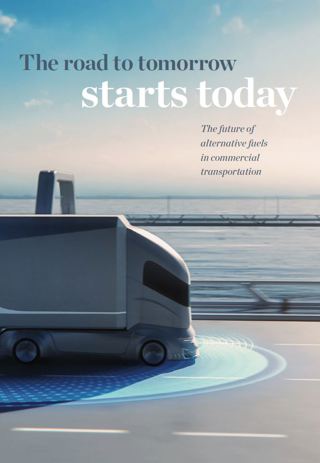The vast majority (88%) of van operators say they would go electric by 2035, but because of charging infrastructure concerns a fifth of those say they will defer the decision for three to seven years.
More than half (58%) said they might be convinced to buy an electric vehicle (EV) sooner if there was a greater number of public charging points.
Just one in eight owners say they don’t plan to ever switch to an electric van.
The new research, published today (Tuesday, May 24) by the Society of Motor Manufacturers and Traders (SMMT), found that 57% of people who own or lease a van in the UK are worried that they wouldn’t be able to find a public charging point when they need it.
With more than four million vans on the road, electrifying the fleet will substantially reduce the UK’s transport-related carbon emissions, while also delivering cleaner air in cities.
More than a third of all new van models now on sale come with a plug and, despite electric van uptake doubling in the past year, these vehicles still account for just one in 20 new van registrations – meaning the market is currently about two years behind that of cars, where uptake of zero emission cars is closer to one in five.
With vans facing the same 2035 end of sale date for non-zero emission vehicles as cars, the automotive sector is calling on all stakeholders to match its commitment to drive the electric transition.
Mike Hawes, SMMT chief executive, said, “Britain’s businesses run on vans and if we’re to deliver the nation’s carbon emission cuts, we need them to move to electric.
“There’s an electric van to suit every business case, but we need a ‘van plan’ to ensure zero-emission driving works for the millions of people for whom their van is their livelihood and the millions more who rely on these workhorses for the delivery of their daily needs.
“The automotive industry is getting these new technology vehicles into the showrooms – we need Government and other stakeholders to match our commitments to get them out on the road.”
Public charge points designed for cars will not always be suitable or in the right locations for vans, which also typically need a larger parking area.
As a result, van charging provision must be factored into national infrastructure plans, with commensurate and binding targets for charge points for passenger cars and commercial vehicles to match the commitments of the automotive industry.
The Association of Fleet Professionals (AFP) has also voiced its concerns about a lack of charging infrastructure for van operators.
It has produced a map of the UK showing where fleets need kerbside charge points close to the homes of company van drivers.
> Interested in comparing electric vehicle data? Check out our EV tool.
> Interested in ensuring the efficient use of EVs. Check out our dedicated editorial sections: Insight & policy | EV news | Charging & infrastructure | Costs & incentives | Benefit-in-kind | EV case studies | EV road tests























Login to comment
Comments
No comments have been made yet.